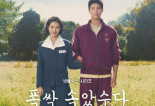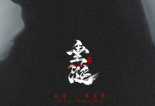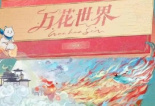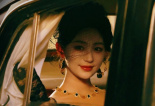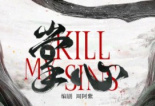Tang poetry through the ages
This is the Zhaoling Mausoleum in Liquan County, Shaanxi Province. Buried here is the most outstanding emperor in Chinese history—Tang Taizong Li Shimin.Li Shimin, this young hero, rebelled against the Sui Dynasty at the age of nineteen. He rode the Six Horses of Zhaoling, holding wind and thunder in his hand, and galloped across China.of the Tang Dynasty.At the age of twenty-nine, he took over the authority of the emperor from his father, Emperor Gaozu of the Tang Dynasty, Li Yuan, and thus began the Zhenguan rule in Chinese history, which is infinitely longed for by future generations.

Although the Li family belongs to the Han nationality, their ancestral home is Longxi. They have been ruled by this ethnic minority since the early fourth century. It has been 400 years since the establishment of the Tang Dynasty.Four hundred years is more than enough time to change the genetics of a family's thoughts and feelings.As a result, the Li family became a deeply barbaric family.They also consider themselves to be descendants of the ancient philosopher Laozi and Li Er, so they highly respect Laozi, Zhuangzi and Taoism.They also have no grudges against Buddhism that has flourished since the Wei, Jin, Southern and Northern Dynasties.With such a political core without prejudice and prejudice, coupled with strong national strength, the development of productivity has reached the highest level of a small peasant society, so the people of the Tang Dynasty were full of confidence and dared to accept everything with a smile.During the two hundred and ninety years of the rule of the Li Group, no one was convicted or beheaded for writing that violated taboos. Even if they satirized the emperor or exposed his shortcomings, it was only considered a trivial matter.Under the feudal system, this was the only dynasty with such a relaxed and generous political atmosphere.
When we talk about the Tang Dynasty, we immediately think of Tang poetry.Tang poetry is the Mount Everest of Chinese poetry. It is unprecedented and unprecedented in the small peasant society.It is an unattainable height.Tang poetry is the Yangtze River and Yellow River in Chinese poetry, which irrigate the land of the Chinese nation with their vast drainage areas.According to statistics, there are more than 3,600 authors of all Tang poetry, and more than 55,000 poems.And since engraving and printing had just been invented in the Tang Dynasty, printing books was not yet easy. Who knows how many poems were lost!Wang Zhihuan, an important poet in the prosperous Tang Dynasty, only has six poems left.So, who can count the total loss of Tang poetry?
In the Tang Dynasty, imperial examinations were implemented, and the Jinshi subject was particularly valued.To be admitted to Jinshi, you need to take a test of poetry. If you do well in poetry, you may have the potential to rise to great heights. Who among scholars would not want to try their skills in this arena.As far as the rumors were concerned, even monks, Taoist priests, prostitutes and other people with a little cultural accomplishment dared to come forward and compose a poem openly, and many of them even kept poetry collections.
In the Tang Dynasty, even politics and philosophy were filled with the fragrance of poetry, which was a typical era of poetry.In the poetry world of the Tang Dynasty, there were not only many poets, but also a group of giants who were awe-inspiring for future generations, like Li Bai, like Du Fu, like Han Yu, like Bai Juyi, etc., etc., the Yangtze River is rolling in.These masters appeared one after another. When poets after the Song Dynasty wrote, they tried their best to jump into their magnetic field but were unable to start, or tried their best to jump out of their magnetic field but were unable to do so.
So, Wang Bo, one of the four heroes of the early Tang Dynasty, came and sang loudly, "There are confidants in the sea, and if we are close to each other in the world, look at this magnanimity!"In ancient times when transportation and communication tools were underdeveloped, few people knew what the other side of the mountain looked like, and it was impossible to be close to each other at the end of the world.Only when people are full of self-confidence and believe that they can live freely and that there will be no political earthquake or any external force to block people's desire to meet, can they sing such heroic sentiments calmly.
So Chen Zi'ang came, standing upright on the Youzhou stage like a giant, facing infinite time and infinite space, singing loudly like spring thunder "The ancients have never been seen before, and the newcomers have never been seen after." Thinking of the long journey of heaven and earth, aloneI burst into tears with sadness!What a tragic song, as if emanating from the depths of history, not only awakened the ever-splendid poetry of the Tang Dynasty, but also still produces aesthetic shock waves in the land of China to this day!
So the majestic group of frontier poets came. They were the guard of honor of the prosperous Tang Dynasty, demonstrating the national prestige of the prosperous Tang Dynasty.Wang Changling came and sang the battlefield march: “ Qinghai is covered by long clouds and snow-capped mountains, the lonely city looks at Yumen Pass in the distance, the yellow sand wears golden armor in a hundred battles, and Loulan will never be returned until it is broken!” So Gao Shi came, and his eternal masterpiece - Yan Ge Xing - came like the tide of the Qiantang River: "The smoke and dust of the Han family are in the northeast, and the Han generals will leave their homes and destroy the thieves.A man is proud of himself, but the emperor gives him great honor."So Cen Shen came, and this poet who was eager to make great achievements sang passionately: "I'm going to the west to reach the sky. I see the moon is full twice after leaving home. I don't know where to stay tonight. There are no people in the flat sand thousands of miles away.“This group of frontier fortress poets either praise the indomitable and high-spirited fighting spirit in the war to defend the motherland, or describe the hardship and cruelty of the war. They are all so heroic and impressive, because they are poets in the prosperous Tang Dynasty and influential figures in the poetry world of the prosperous Tang Dynasty., what erupts is the ever-shocking symphony of frontier heroes.
Finally Li Bai came. He matched up with the strongest voice of the times and sang "If you don't see it, the water of the Yellow River comes up from the sky and rushes to the sea never to return" with a momentum that shocked the ages.This is the feeling that can only be found when a giant raises his head high into the sky and lifts the rolling waves of the Yellow River with his eyes as he pours them into the sea.It was this declaration that the super giant who could defeat the powerful and make me unhappy was able to push the spirit of the prosperous Tang Dynasty to the highest peak that would shine through the ages.
However, the Tang Dynasty, which was at its peak, finally led to the An-Shi Rebellion. This war lasted for eight years and wiped out the prosperity of the Tang Dynasty.So Du Fu came over looking haggard.Although this compassionate poet was already forty-four years old when the Anshi Rebellion broke out, he could not sing the idealism or the romantic temperament of the prosperous Tang Dynasty.What he sang with his hoarse voice was that the country was in ruins and the mountains and rivers were still there, and the spring vegetation in the city was deep. It was the blood and tears of the mid-Tang Dynasty, and the sadness of witnessing the collapse of the prosperous Tang Dynasty.
So Han Yu came.This poet with a strong personality who wanted to summon back the atmosphere of the Tang Dynasty to regain his self-confidence created a strange and dangerous school of poetry.He shouted loudly, using the language of poetry to shout out the eternal saying that "things will thrive if they are not equal".Showing the courage to use the power of the earthquake to re-launch a peak.So Bai Juyi came, and as soon as he appeared on the stage, he stubbornly sang the tenacity of "the wild fire will never burn out, and the spring breeze will revive".It shows that the Tang Dynasty is still a dynamic existence.He launched the massive New Yuefu Movement. His poetry style was simple and simple, which stood side by side with Han Yu's strange and dangerous twin peaks, which made Tang poetry present another new world with a variety of phenomena.
However, after all, the Tang Dynasty embarked on an irreversible decline.Tang poetry also fell from the prosperity of the Middle Tang Dynasty to the decline of the Late Tang Dynasty.So Li Shangyin came.His vision was hazy, he didn't know where the wind was coming from or where it was going.His singing voice was sentimental and deep like that of the ancients. He looked at the gradually dimming dusk and sang in a low voice: Feeling unwell towards the evening, he drove to Guyuan. The sunset was infinitely beautiful, but it was almost dusk.”He was lamenting his dissatisfaction, but we also saw the decline of the Tang Dynasty.
The Tang Dynasty, this glorious moment in Chinese history, finally came to an end.Tang poetry also sings the final loss with a voice as sad as a chilling cicada.Wei Zhuang stood on the wall of the ancient city of Nanjing and sang: “The river is raining and the river is full of grass. The six dynasties are like a dream and the birds are singing in the sky. The most ruthless willows are the Taicheng willows, which are still smoked ten miles across the embankment.”This is to mourn the fall of the Six Dynasties, to bid farewell to the Tang Dynasty, and to leave the last sigh for Tang poetry.
When Tang poetry ended, its influence had just begun.The quatrains, which were finally finalized in the Tang Dynasty, and the rhythmic poetry that arose in the Tang Dynasty, have traveled through thousands of years and have been used to this day.When people write old-style poems today, they usually write a poem with five unique styles, five rhythms, seven unique styles, and seven rhythms.Probably few people have thought that it was the poets of the Tang Dynasty who cast a ready-made mold that made it so convenient for us to write poetry.Most of the poets of the Song, Yuan, Ming and Qing dynasties were influenced by Tang poetry to some degree or another, directly or indirectly.Let’s not talk about individuals, let’s talk about larger poetry schools and more influential poetry movements.The Xikun School in the early Northern Song Dynasty studied Li Shangyin exclusively, and only wanted to write poems that were hazy or even obscure, regardless of whether they were poetic or not.The Jiangxi school headed by Huang Tingjian, which arose in the late Northern period, regarded Du Fu as its ancestor, paid attention to the use of allusions, and boasted that there was no word or origin.The retro movement that arose in the middle and late Ming Dynasty even categorically called for "poems must flourish in the Tang Dynasty". They only wanted to write poems in a majestic tone and make the gongs ring loudly, no matter whether it was music or not!It was not until the reform movement in the late Qing Dynasty that traditional poetic aesthetics began to be challenged. Kang Youwei loudly shouted that "the artistic conception is almost inferior to that of Li and Du, and where is the Yuan and Ming Dynasty in his eyes", did he finally dare to stand on the commanding heights of the times and overlook Tang poetry.Having said that, it was only after the May 4th Movement and the rise of vernacular that Chinese poetry finally emerged from the magnetic field of Tang poetry.



